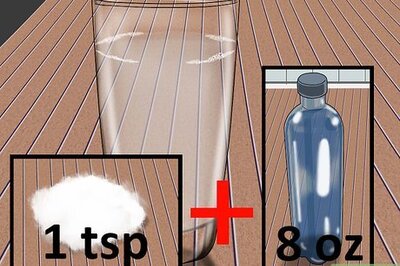
views
Washington: The Food and Drug Administration has approved the first over-the-counter HIV test, allowing Americans to test themselves for the virus that causes AIDS in the privacy of their homes.
The OraQuick test detects the presence of HIV in saliva collected using a mouth swab. The test is designed to return a result within 20 to 40 minutes.
Government officials estimate one-fifth, or about 240,000 people, of the 1.2 million HIV carriers in the US are not aware they are infected. Testing is one of the chief means of slowing new infections, which have held steady at about 50,000 per year for two decades.
FDA officials said the test is aimed at people who might not otherwise get tested.
"The availability of a home-use HIV test kit provides another option for individuals to get tested so that they can seek medical care, if appropriate," said Dr Karen Midthun, director of the FDA's Center for Biologics Evaluation and Research.
FDA stressed in its approval announcement that the test is not 100 per cent accurate. A trial conducted by Orasure showed the home test only correctly detected HIV in those carrying the virus 92 per cent of the time. That means that the test could miss one person for every 12 HIV-infected people who use the kit.
The test was accurate 99 per cent in ruling out HIV in patients not carrying the virus. That means the test would incorrectly identify one patient as having HIV for every 5,000 HIV-negative people tested.
The FDA previously approved several HIV test kits designed to be used at home, although those kits — which usually require a blood sample — must be sent to a laboratory to be developed.
Based in Bethlehem, Pennsylvania, Orasure has marketed a version of OraQuick to doctors, nurses and other health care practitioners since 2002. When used by professionals, the test is shown to accurately identify both carriers and non-carriers 99 per cent of the time.
While it's not clear why the test appears less accurate in consumer trials, company researchers said they expected the test's specificity to drop when used by consumers versus professionals.




















Comments
0 comment